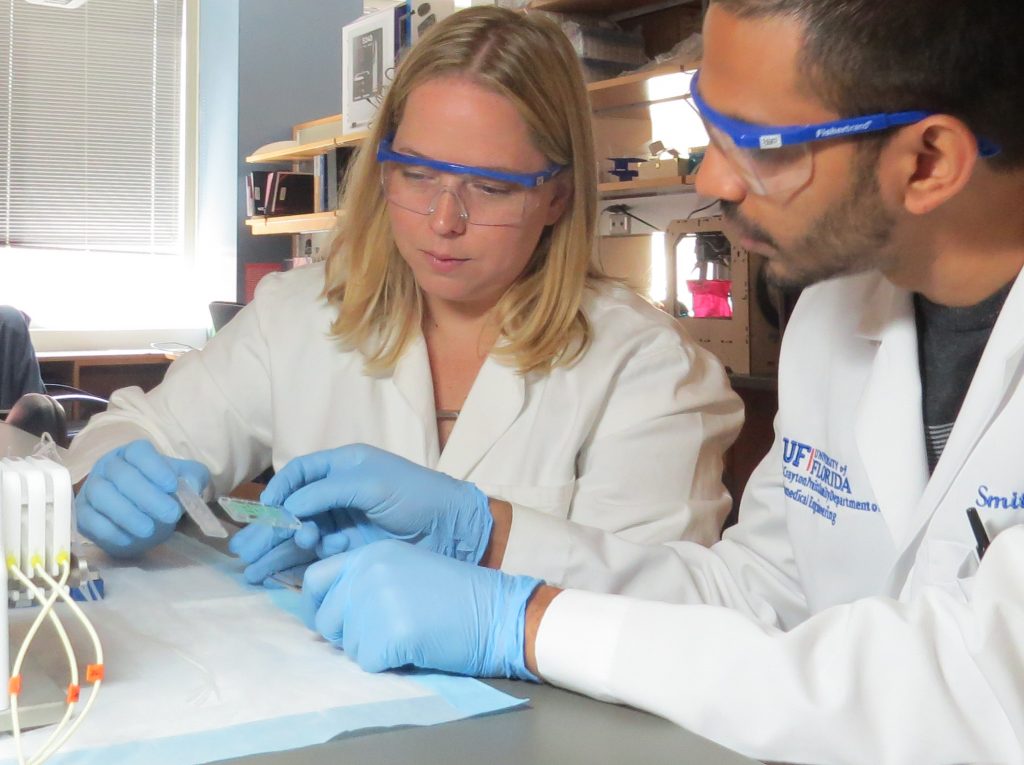Stabler awarded 2021-2022 HW College of Engineering Doctoral Dissertation Advisor/Mentor Award

Congratulations to Dr Cherie Stabler, professor and Integra LifeSciences Term Professor, on receiving the 2021-2022 Herbert Wertheim College of Engineering Doctoral Mentoring Award.
This honor, based on an extensive review of her credentials, letters of recommendation, and peer and student evaluations, recognizes excellence in mentoring graduate students. College Undergraduate Adviser/Mentor Award winners are also submitted to University Faculty Development for consideration for the university-wide Undergraduate Adviser/Mentor of the Year Award.
Dr. Stabler’s statement regarding her approach to mentoring:
In my laboratory, I strive to support a culture that conveys the values of diversity and inclusion, creativity and support, and ethics and rigor. I value diversity and inclusion in my team because I know this is not only for the advancement of society but for the betterment of scientific advancements. To solve complex problems, diversity in training, perspectives, and lived experience are needed. To push the boundaries of scientific knowledge, team members must feel empowered to speak and act in ways that are outside of their comfort zone. They should also know they are valued and respected by their team members and mentors. Thus, I strive to ensure that my team reflects the diversity of our environment and that its members value and listen to diverse opinions. I also strive to create an inclusive space for people to extend themselves beyond their comfort zone, as well as support them to “fail”, learn, and grow. As researchers pushing the boundaries of knowledge and also striving to translate concepts from the bench to the bedside, it is essential that we hold ourselves to the highest ethical standards.
One way I support this is by creating a team-based research environment, where students collaborate to collect, evaluate, and interpret data. Recognizing the inherent stress mentors can sometimes put on their students to prove were are “right” on a particular hypothesis, I continue to remind students that there is no “good” or “bad” data and that the goal is a well-designed study – not the end result. I also publish results, even if they disprove the original hypothesis. Finally, we share detailed protocols and provide guidance to researchers on various techniques and methods. Overall, I seek to not only support a culture that supports the scientific pursuits of the student but also ensure they understand the importance of the ethical collection, interpretation, and communication of science.
